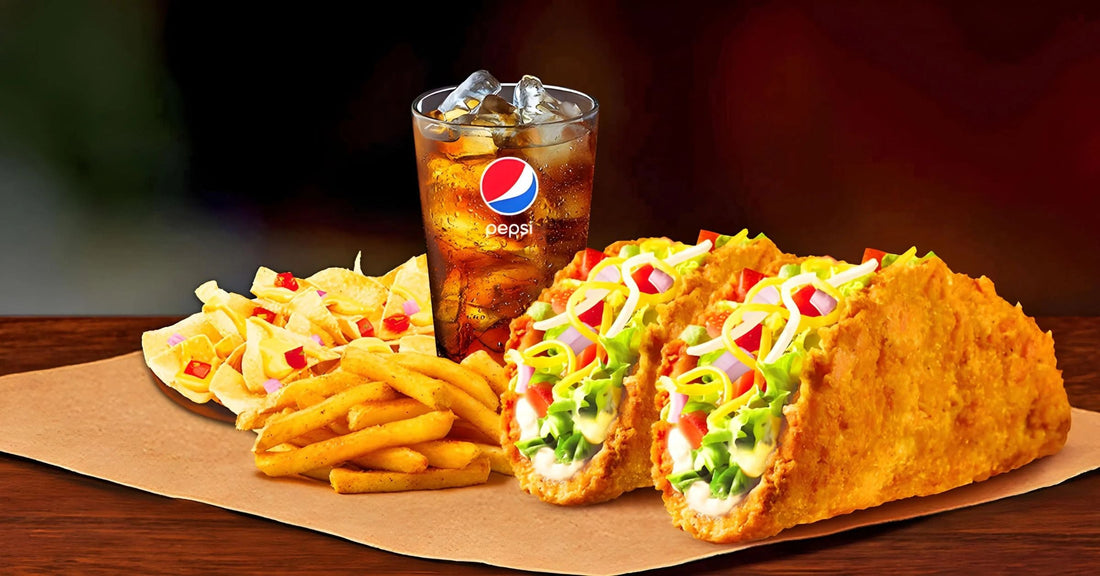Taco Bell is having second thoughts about AI
Dr. Anya SharmaTaco Bell grants franchisees menu flexibility amid evolving fast-food landscape.

Taco Bell is adjusting its approach to franchisee relationships as it navigates menu updates and operational changes. The company is giving franchisees more flexibility, allowing them to opt out of certain offerings like the breakfast menu.
This decision reflects a broader strategy to empower franchisees and adapt to evolving consumer preferences in the fast-food industry. The move highlights the ongoing tension between corporate standardization and local customization in franchise systems.
Highlights
- Taco Bell is giving franchisees the option to drop the breakfast menu.
- This decision aims to provide franchisees with more flexibility.
- Taco Bell is still confident in its breakfast options and overall growth.
Read More: Jessica Alba's Net Worth: Acting, Business & Real Estate
Top 5 Key Insights
• Franchisee Flexibility: Taco Bell is now allowing franchisees to opt out of serving breakfast, providing them with more control over their menus and operations. This flexibility enables franchisees to focus on specific dayparts or menu items that perform better in their locations.
• Strategic Menu Focus: Some franchisees are choosing to drop breakfast to dedicate more attention to the lunch daypart and the new Cantina Chicken menu. This strategic shift allows them to optimize resources and capitalize on popular menu items that drive revenue.
• Confidence in Breakfast: Despite allowing franchisees to opt out, Taco Bell remains confident in its breakfast platform. The company plans to ramp up its coffee program and continue testing new breakfast items, indicating a continued investment in the morning daypart.
• Adapting to Change: Taco Bell's decision reflects a broader effort to be nimble and adapt to a constantly changing quick-service restaurant (QSR) environment. By listening to franchisee feedback and making adjustments, the company aims to support overall brand growth.
• Growth and Innovation: Taco Bell views these changes as part of its ongoing commitment to innovation and improvement. The company is constantly testing new products and restaurant formats to better serve franchisees, team members, and customers.
Read More: Beyoncé's Net Worth Rises, Driven by Tour
Expert Insights
Taco Bell Statement: "We are known for our partnership with franchisees, and this is another example of how the brand is listening to its people, taking their feedback into account, and making changes to support the overall growth of the brand."
Restaurant Business Online: "After giving its franchisees the ability to opt out of offering its breakfast menu, a small minority of Taco Bell franchisees have chosen to stop serving breakfast starting in October."
Read More: Chegg Cuts Staff, CEO Replaced Amid AI Disruption
Wrap Up
Taco Bell's evolving franchisee strategy underscores the importance of adaptability and collaboration in the fast-food industry. By empowering franchisees and embracing innovation, Taco Bell aims to navigate market challenges and maintain its competitive edge.
This approach highlights the ongoing effort to balance brand consistency with the need for localized strategies that resonate with diverse customer bases.
Read More: AI Job Shift: Navigating the Changing Workplace
Author
Dr. Anya Sharma - A globally recognized business strategist and management consultant with over 18 years of experience. She shares her insights on strategic planning, leadership, and navigating the global business landscape with Enlightnr readers.
More to Explore
- Choosing a selection results in a full page refresh.
- Opens in a new window.




